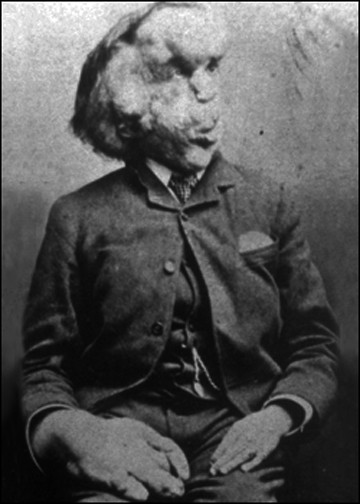 Media, as I wrote multiple times, is an important part of our everyday life - we consume media content all the time and we have to finally accept that. Unfortunately, the influence that media hold over all of us has not always been used to our benefit. Take the representation of the disabled people for example. As Barnes said in his article about discrimination (1991) the media can’t be held responsible for all what’s going on but on the other hand, its impact cannot be overlooked.
Media, as I wrote multiple times, is an important part of our everyday life - we consume media content all the time and we have to finally accept that. Unfortunately, the influence that media hold over all of us has not always been used to our benefit. Take the representation of the disabled people for example. As Barnes said in his article about discrimination (1991) the media can’t be held responsible for all what’s going on but on the other hand, its impact cannot be overlooked.
“The Elephant Man” (1980) is a movie about Joseph Merrick, he suffered from proteus syndrome which according to Wikipedia “causes skin overgrowth and atypical bone development, often accompanied by tumors over half the body”. Considering the study of Paul Hunt (1991) in which he described 10 stereotypes that media use to portray disabled people this character would score 8/10. Joseph is portrayed as pitiable object of curiosity and violence, atmosphere, his worst enemy, non-sexual, laughable, a burden and being unable to participate in daily life. Even going to a train station is a huge deal for him, people laugh at him and perceive him as a disgusting creature when he is just suffering from a very rare syndrome.
As Shakespeare said (1999;64) “impairment is made the most important thing” and disabled characters are “objectified and distanced from the audience”. John is portrayed as a pitiable human being, in one of the scenes he screams “I’m not an elephant, I’m not an animal, I’m a human being” which is his biggest dream to be perceived as a human not weird creature. Character of John Merrick is shown as a laughable one – he’s treated like a thing by an owner of a ‘Freak Show’.
Haller argues that “even something as mundane as the words used to refer to a group are important because they have ramifications both for the self-perception of people with disabilities and what the general public believes about disability’ (2006; 64). It’s a main point in the story of Merrick. Dr. Frederick Treves treats Merrick as a human not looking first at his disability which leads to building a true friendship between those two characters. On the other hand we have also the rest of the society which looks at Merrick as a freak, not a human being which leads him to feel bad about himself and finally accepting the fact that he is a freak and believing in it to be true.
Disability is unfortunately still a hook that writers and filmmakers use to draw an audience into the story. Shakespeare was right writing in 1999 that “Above all the dominant images [of disabled people] are crude, one-dimensional and simplistic” calling it a lazy shortcut as well. The saddest thing about this particular character is that it’s based on a true story – John Merrick lived in the UK in XIX century and this movie is a great insight into his life. Summing up disability is a key point only if media makes it be so. Fair representation can change so much not only in the media content but in other people’s lives so next time looking at a picture of “the super cripple” don’t be afraid to say it out loud that disability is not a thing that defines who the person is.
Sources I’ve used to write this blogpost:
1) Barnes, C. (1992) Media Guidelines. In: Pointon, A., and Davies, C. (eds.) (1997) Framed: Interrogating Disability in the Media. London: British Film industry. 2) Shakespeare, T. (1999) Art, and lies? Representations of disability on film. In: Corker, M. and French, S. (eds.) Disability Discourse Buckingham: Open University Press.
3) Haller, B. et al. (2006) Media labeling versus the US disability community identity: a study of shifting cultural language. Disability and Society, Taylor and Francis Group Ltd, 21(1), 2006
4) https://en.wikipedia.org/wiki/Proteus_syndrome
5) http://disability-studies.leeds.ac.uk/files/library/elliot-r-Robert-H.-Elliott-Dissertaton-Final.pdf


Brak komentarzy:
Prześlij komentarz
Każdy komentarz jest dla mnie ogromną motywacją do dalszych działań!!
Zostaw link do swojego bloga - na pewno go odwiedzę :)